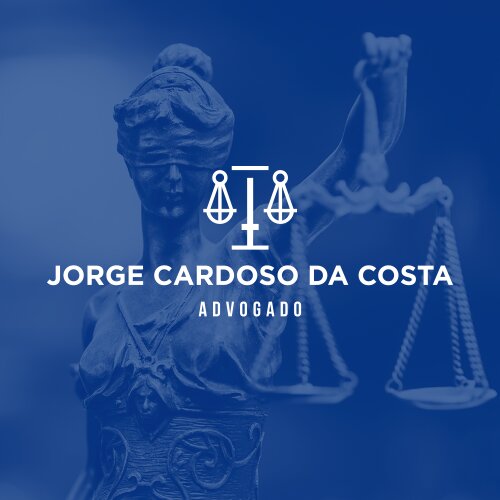Best Collaborative Law Lawyers in Vila Nova de Gaia
Share your needs with us, get contacted by law firms.
Free. Takes 2 min.
Free Guide to Hiring a Family Lawyer
List of the best lawyers in Vila Nova de Gaia, Portugal
About Collaborative Law in Vila Nova de Gaia, Portugal
Collaborative Law is an alternative dispute resolution process designed to help parties resolve legal issues amicably without resorting to traditional litigation. In Vila Nova de Gaia, Portugal, Collaborative Law is gaining recognition as a constructive means of resolving family law disputes, business disagreements, and other civil matters. Both parties, with the assistance of specially trained lawyers, commit to working together honestly and transparently to reach mutual agreements. This process encourages open communication, cooperation, and solutions that reflect the interests of all involved, protecting relationships and often resulting in more satisfactory outcomes.
Why You May Need a Lawyer
There are several situations where engaging a lawyer skilled in Collaborative Law can be highly beneficial:
- Divorce and Family Law: Couples looking for amicable separations or custody agreements may prefer collaborative solutions over contentious court battles.
- Business Disputes: Business partners or stakeholders aiming to resolve conflicts while maintaining ongoing relationships may benefit from collaborative processes.
- Inheritance and Estate Matters: Family members can avoid protracted litigation over inheritance by working together collaboratively.
- Community and Neighbor Disputes: Collaborative Law can help preserve positive relations among neighbors or associations.
- Employment Issues: Disputes between employers and employees, particularly in small enterprises, can often be resolved with this method.
In each of these scenarios, a lawyer trained in Collaborative Law ensures your rights are protected while facilitating productive negotiations toward resolution.
Local Laws Overview
In Vila Nova de Gaia, as in the rest of Portugal, Collaborative Law is rooted in principles of negotiation, transparency, and problem-solving. There is no single statute dedicated to Collaborative Law, but it is recognized as a valid form of alternative dispute resolution under Portuguese civil procedure frameworks. Particularly in family law, the system aligns with the objectives of amicable and consensual resolution of disputes, as encouraged by Portuguese Civil Code and Family Law provisions. Lawyers participating in collaborative processes must be properly trained. All involved parties must sign a participation agreement, committing themselves to the process and agreeing not to initiate litigation while negotiations are ongoing. Importantly, if the process fails, the lawyers involved cannot represent the parties in subsequent court proceedings, ensuring the integrity of the collaborative effort.
Frequently Asked Questions
What is Collaborative Law?
Collaborative Law is a structured process where parties work together, with the help of trained lawyers, to settle disputes outside of court through open communication and negotiation.
How is Collaborative Law different from mediation?
While both aim for amicable settlement, mediation involves a neutral third party (the mediator) who facilitates communication. In Collaborative Law, each party is represented by their own lawyer, but all commit to resolving the issue collaboratively without going to court.
What types of cases can use Collaborative Law in Vila Nova de Gaia?
Collaborative Law is often used in family law matters such as divorce, child custody, and division of property, as well as civil cases like business disputes, inheritance issues, and community disagreements.
What happens if we do not reach an agreement?
If the collaborative process fails, the lawyers involved must withdraw, and new legal representation is necessary if the case proceeds to court.
Is Collaborative Law legally binding?
Yes, once an agreement is reached and put into writing, it can be submitted to the court for approval, which gives it the same legal effect as a court judgment.
Are Collaborative Law sessions confidential?
Yes, all discussions during the collaborative process are confidential and cannot be used as evidence if the dispute later goes to court.
How long does the process take?
The duration depends on the complexity of the issues and the willingness of the parties to communicate, but it is generally faster than traditional court proceedings.
Do I need a special lawyer for Collaborative Law?
It is highly recommended to work with a lawyer trained in Collaborative Law to ensure the process is effective and your interests are represented appropriately.
What are the costs involved in Collaborative Law?
While there will be legal fees, collaborative processes often cost less than litigation due to shorter timelines and less formality.
Can Collaborative Law agreements be changed later?
Yes, agreements can be altered if both parties agree on the changes. For matters like child custody or support, court approval may be necessary for modifications.
Additional Resources
If you are seeking support or guidance on Collaborative Law in Vila Nova de Gaia, consider the following resources:
- Ordem dos Advogados (Portuguese Bar Association): Provides information and referrals to lawyers trained in Collaborative Law.
- Vila Nova de Gaia Family and Civil Mediation Centers: Offer mediation and collaborative services for family and civil disputes.
- Instituto Português de Mediação Familiar: A national body promoting mediated resolutions, including collaborative methods in family law.
- Local legal aid offices (Advocacia Pro Bono): May assist those qualifying for assistance in finding collaborative law practitioners.
- Municipal Social Services: Can refer individuals to appropriate legal and support services.
Next Steps
If you believe Collaborative Law may be suitable for your situation in Vila Nova de Gaia, follow these steps:
- Consult with a lawyer who is experienced and trained in Collaborative Law to assess your case.
- Discuss the process, including expectations, costs, and timelines with your lawyer.
- Inform the other party of your interest in a collaborative approach and encourage them to obtain their own trained legal counsel.
- Sign a participation agreement to formalize everyone’s commitment to the collaborative process.
- Engage openly and honestly throughout the negotiations toward achieving a mutually beneficial agreement.
Seeking early legal advice ensures you understand your rights and increases the likelihood of a positive outcome. Make sure to choose a lawyer with expertise in Collaborative Law for the best results in Vila Nova de Gaia.
Lawzana helps you find the best lawyers and law firms in Vila Nova de Gaia through a curated and pre-screened list of qualified legal professionals. Our platform offers rankings and detailed profiles of attorneys and law firms, allowing you to compare based on practice areas, including Collaborative Law, experience, and client feedback.
Each profile includes a description of the firm's areas of practice, client reviews, team members and partners, year of establishment, spoken languages, office locations, contact information, social media presence, and any published articles or resources. Most firms on our platform speak English and are experienced in both local and international legal matters.
Get a quote from top-rated law firms in Vila Nova de Gaia, Portugal — quickly, securely, and without unnecessary hassle.
Disclaimer:
The information provided on this page is for general informational purposes only and does not constitute legal advice. While we strive to ensure the accuracy and relevance of the content, legal information may change over time, and interpretations of the law can vary. You should always consult with a qualified legal professional for advice specific to your situation.
We disclaim all liability for actions taken or not taken based on the content of this page. If you believe any information is incorrect or outdated, please contact us, and we will review and update it where appropriate.









